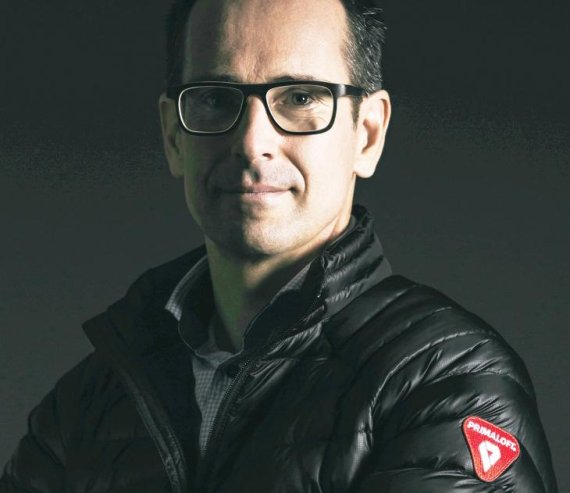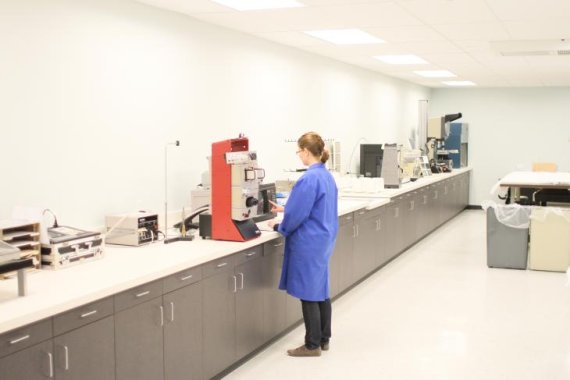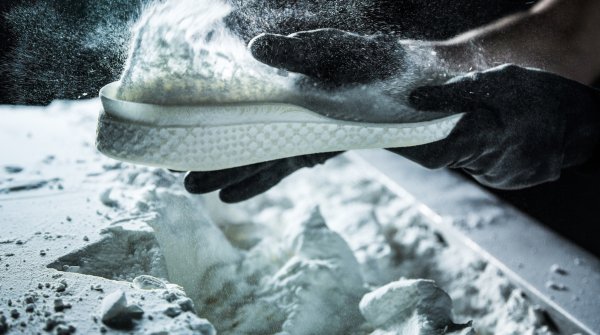
Mr. Lagemann, as an ingredient brand, Primaloft isn’t typically in direct contact with the customer – is that still true in these times of digitization?
Jochen Lagemann: No - we’re noticing an increase in inquiries from end consumers coming directly to us, and the number of online retailers that receive consultation and training on our products is constantly growing. Consumers have changed their information and purchasing behavior in recent years. For us as an ingredient brand, this trend is only making its presence known indirectly, as we distribute our products exclusively to our brand partners. Nevertheless, the relationship to retail is essential for us – whether stationary or online.
How important is contact with the end consumer? Do you use that feedback?
For us, it’s primarily about informing end customers about the benefits of Primaloft products and generating a palpable added value for them in the end product. To ensure this, we work very closely with our brand partners as well as with retailers and their campaigns. But we also don’t address the end customer directly. We support the sales process with additional information through appropriate labels and hangtags on the products.
But the actual dialog often happens only on our own communication channels – primarily through social media like Facebook or Instagram. That’s how we increase and foster end clients’ trust in and perception of the brand, simultaneously boosting demand with our partners – using the classic pull marketing effect. We also receive numerous questions and suggestions through these channels that we naturally also want to pass on to our product development team. We also keep getting input through our website.
However, our greatest responsibility currently is still training customers and retailers who then in turn serve as multiplicators for us. We are working on customer-centric developments with our brand clients based on the information that we receive from athletes and “normal” end customers.
Communication is becoming more and more important - what does that mean for the sports industry in general?
It’s not just about attracting customers with information and offers anymore. Rather, it’s the challenge of getting to know customers through additional, attractive offers and services and better understanding their individual needs. This can be achieved, for example, by forming communities like big brands The North Face or adidas do. It makes customers familiar with the brand and loyal in the long term.
Everybody’s talking about the digital transformation. What effect is it having on your business?
For us, digitization isn’t some monster we’re afraid of. It’s bringing a lot of advantages for us. It offers us numerous new opportunities to work together with our brand partners or retailers. It’s also easier for us to get in direct contact with end consumers, through social media for example, and better understand their needs.

What do you expect from trade fairs in the era of the digital transformation?
In my opinion trade fairs can build bridges, to both be a more important meeting place for brands and retailers and at the same time to give end consumers access to innovations and new trends, which in turn helps the brands increase their name recognition.
That’s best achieved via digital channels. From our perspective, ISPO Munich should continue to be a trade fair exclusively for professional guests. This has to be done throughout the year, even after the trade fair period. Moreover, it’s a holistic view of what will move the industry forward. And that’s more about services than a mere product presentation platform.
What major challenges lie ahead of us? What changes do you see in store for us in terms of industry and retail?
For the outdoor industry, in addition to innovations, the primary focus is on the subjects of sustainability and social responsibility - both are topics that have always been rooted in our company values. The challenge for all market participants is now and will be in the future combining the best possible product performance with the most minimal possible environmental impact, while still preserving profitability. At Primaloft, for example, we have drawn up a five-year sustainability plan, according to which 90 percent of the entire insulation product range will contain at least 50 percent of recycled fibers within the next three years. And we are very confident that we will reach this goal ahead of schedule.
What responsibilities in particular lie ahead of retail?
The biggest challenge for retail lies in seeing to the issues of online retail and positioning oneself accordingly. The e-commerce trend is unbroken and the share of the total volume will undoubtedly continue to grow in the coming years. It’s important for stationary retail to remain competitive and retain customers, for example by providing excellent advice or additional services. For many retailers, the path is clearly leading towards multichannel.
I think individual contact between brands and consumers will continue to increase. Companies are getting better and better at responding to individual wishes and offering custom services and products. But I also think that strong partners in stationary retail will remain essential for this.
You’ve already discussed sustainability: What other goals do you have in this sector?
For us, being a sustainably acting company means more than just using recycled materials in our products. We will continue to work hard on further reducing the environmental impact at every stage from development to production. Next, we will take further steps to reduce our environmental impact along the entire value chain, mainly in the areas of reducing energy consumption, reducing CO2 emissions, and using plant-based, natural fibers. Of course, we also rely on a long life cycle of our products.
There’s currently a lot of discussion about bio-based plastics. Is that also an alternative for you?
We are researching in different directions in order to find solutions that are as environmentally friendly as possible – but the first premise is always to have no loss in terms of performance. So far we’ve already had very good experiences with different kinds of so-called blends. Organic materials such as Merino wool or silk can give our products special properties.
Is sustainably more expensive - as they always say?
Sustainable doesn’t always have to mean expensive. However, in the case of our polyester microfibers, it is definitely more complex and therefore more costly to use recycled material. Nevertheless, we still want to include as much recycled PET bottles as possible in our production. Incidentally, the additional costs are not passed on to our customers. This winter season, for example, we completely replaced our top product Primaloft Gold Insulation with the eco-variant with 55 percent recycled material, without increasing the price.
Last question: What do you have to say on the current season? How is the feedback from your customers looking?
After two relatively poor winters in Europe, we are very happy that the current season has gotten off to a much better start. The early first snow, low temperatures and, for the most part, ideal winter sports conditions in the mountains have generally done retail sales a great deal of good. And what’s good for the sales of our clients also ultimately has a positive effect on our business. We as an ingredient brand are already busy planning for the next two winter seasons.

 Sports BusinessSki Mountaineering Goes Olympic: What Milano-Cortina 2026 Means
Sports BusinessSki Mountaineering Goes Olympic: What Milano-Cortina 2026 Means
- ISPO awards
- Mountain sports
- Bike
- Design
- Retail
- Fitness
- Health
- ISPO Job Market
- ISPO Munich
- ISPO Shanghai
- Running
- Brands
- Sustainability
- Olympia
- OutDoor
- Promotion
- Sports Business
- ISPO Textrends
- Triathlon
- Water sports
- Winter sports
- eSports
- SportsTech
- OutDoor by ISPO
- Heroes
- Transformation
- Sport Fashion
- Urban Culture
- Challenges of a CEO
- Trade fairs
- Sports
- Find the Balance
- Product reviews
- Newsletter Exclusive Area
- Magazine





